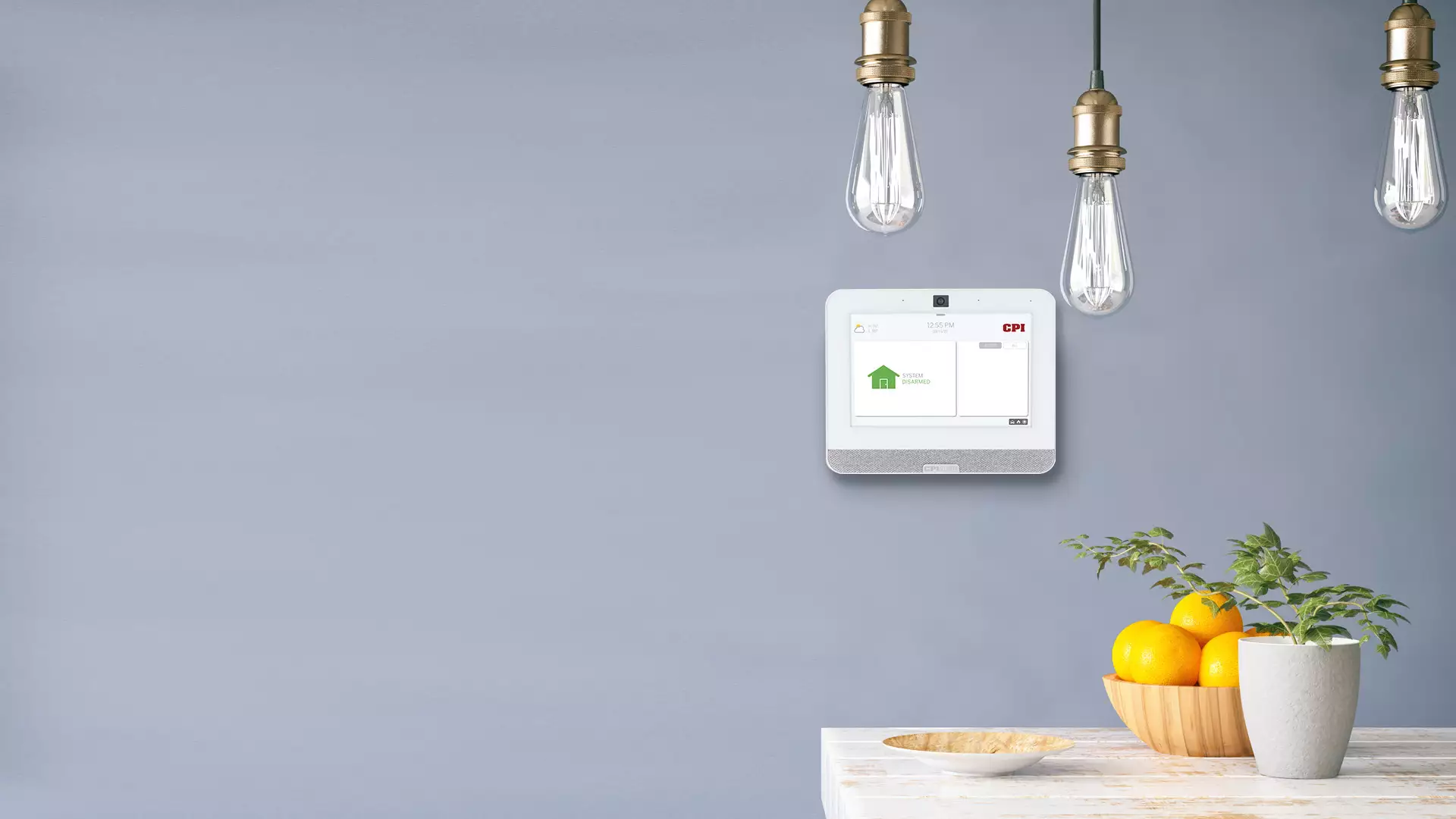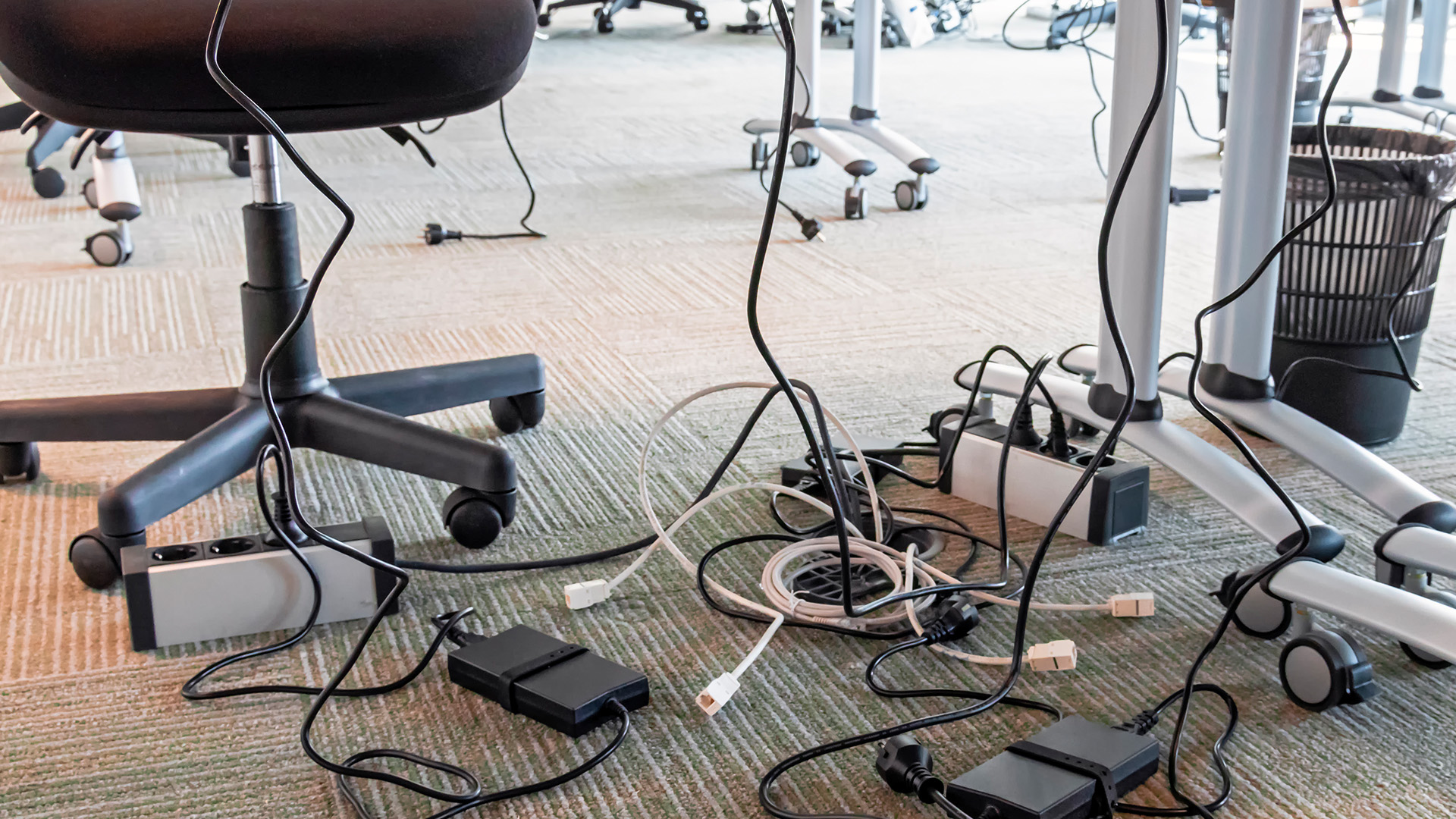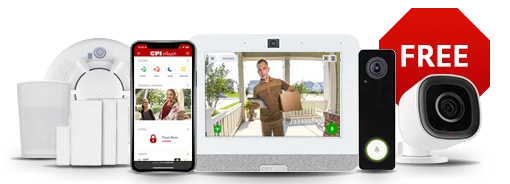Smart security isn’t just about protecting homes, but businesses as well. Unfortunately, we’re seeing a rise in crime against small businesses.
Did you know:
- 54% of small businesses have reported an increase in shoplifting in the last year.*
- 1 in 4 small businesses said they have to deal with shoplifting once a week.*
Don’t let your business become another statistic. Up your security game with these five tips to help protect your small business so that you, your employees, and your livelihood are safe and secure.
5 Ways to Improve Small Business Security
Tip 1: Invest in The Right Number of Small Business Security Cameras & Alarms: How Many Do You Need?
Before we get into the specific number of cameras and alarms you should invest in, it’s important to note the difference between the two.
Unfortunately, many business owners have a common misconception that because they have cameras, they also have security. However, that couldn’t be further from the truth.
Alarm systems detect break-ins that occur around the perimeter of the business – doors, windows, etc. These systems can provide a pivotal layer of security by alerting you whenever an intruder has broken into a door or window of your business. When paired with motion detectors, glass break detector, and more, they can also alert authorities of the presence of criminal activity within your office.
Cameras help you visually keep tabs on what’s happening in and around your business. With security cameras, you’ll be able to monitor, record, and review security footage of your facility and facility adjacent spaces like alleyways, sidewalks, and parking lots.
Cameras become a truly powerful tool in security when integrated with an alarm system. When an alarm is triggered, and if your system is monitored, the professional monitoring team can use your camera footage to verify alarms and emergencies, getting the authorities there more quickly and saving precious seconds when it matters most.
To truly keep your small business safe, it’s essential to use both systems. Alarms can notify key individuals and law enforcement of a break-in, while cameras can record the perpetrator in action.
Streamline your security measures by integrating an alarm system with your security cameras. CPI offers a robust assortment of security options, including a system that combines alarms and cameras for maximum safety. These work for any business vertical and include 24/7 monitoring to ensure that your small business is safe.
So, how many cameras & alarms do you need? The answer is that it’ll vary based on the specific layout of your property and your security goals. At a minimum, you’ll want cameras that cover key entrances and surrounding areas. You’ll also want to install cameras inside your business in any critical or secure areas.
Likewise, it would be best to have enough alarms to ensure that your space is adequately covered and protected. Try to avoid blind spots or areas of enhanced vulnerability.
Tip 2: Track Who is Coming and Going with Access Control Measures
Small business crime doesn’t just happen during off-business hours. It’s also important to monitor and track who’s entering your business during a regular working day. Having a security protocol in place that requires employees to use a badge to enter the business can help secure your company and track the movement of unauthorized employees, vendors, and delivery agents.
CPI offers an access control security system that enhances your business’s security by providing each employee with a unique badge that they can use to enter your business. Through this system, you can also assign unique key codes to employees. That way, you can get notifications on your app when specific employees arrive, open the business, and lock up for the day.
These advanced insights can help catch any fraud or time mismanagement and help you protect your business from unauthorized visitors.
Tip 3: Enhance Onsite Safety to Reduce Workplace Hazards
Another way to improve the security of your small business is to ensure that your employees are operating in a safe workplace environment. Start by making sure that the most common workplace hazards (electricity, fire hazards, injuries) are clearly addressed and that your employees understand what to do in an emergency.
For even more information, read our blog post on avoiding common workplace hazards to improve your business’s onsite safety.
Tip 4: Have a Clearly Defined Evacuation Plan
An ounce of preparation can go a long way towards ensuring the security and safety of your small business. As such, it’s critical for your small business to have a detailed employee evacuation plan in the case of an emergency. These can be incredibly helpful and even save lives in a fire, earthquake, security breach, or other unforeseen disasters.
To start, create maps of the business floor plan and escape routes. Post these maps in offices, break rooms, and relevant hallways. Review these maps and plans periodically with all employees. Include them in your employee handbook. The roles and responsibilities of everyone involved should also be clear to avoid confusion and keep everyone safe.
Tip 5: Ensure your Business Is Up to the Local Fire Code
No one wants to think about the unfortunate event of a fire at your small business, but these things can happen, and it’s best to be prepared when they do. Protect your business and stay fire code compliant by:
- Identifying any critical fire-starting risks (combustible materials/heat-producing machinery) – regularly audit and review these risks to ensure proper storage and maintenance.
- Keep all fire exits clear of any blockages.
- Don’t let flammable trash or package materials build up.
- Consider installing a fire & light safety system to help guide your employees to exits in the event of smoke obstruction.
CPI offers 24/7 fire alarm monitoring services for all business verticals —and be assured, regardless of the type of business you have, fire incidents can happen. Since the difference between a minor incident and a total loss is dependent on how quickly the fire department arrives, CPI’s system is a pivotal tool to help ensure that your small business is protected through early detection and fast emergency response.
Business Security Systems Cost
This is the question asked often by business owners, and the answer varies. Imagine if a break-in or security breach did occur, and you lost everything. Comparatively, the cost of a properly installed security system would be low compared to the costs of stolen equipment or facility damage.
The value of these systems only increases depending on the security provider you choose. Especially when you consider the peace of mind that comes from knowing the system has been properly installed by professional security technicians, and that you’re protected with 24/7 monitoring and emergency response.
When you consider all the time, money, and work you’ve put into your small business, a security system (like the small business security systems offered by CPI) is an easy choice to keeping your business and employees safe and secure.
*CNBC, “Fed up with the rise in thefts and shoplifting, small-biz owners across U.S. are taking action.”






